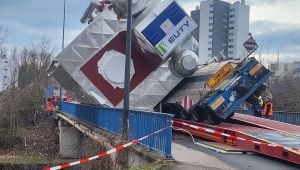The Israeli-Palestinian conflict continues to be marked by violence and political tension as both sides navigate the consequences of recent escalations. Reports from various sources detail intense confrontations resulting from government actions, responses from local populations, and international diplomatic discussions.
Recently, violence erupted following the Israeli government's decision to expand settlements, which Palestinians view as illegal encroachments on their land. This development has sparked widespread protests across the West Bank and Gaza Strip, with demonstrators demanding international intervention and adherence to previous peace agreements.
According to Al Jazeera, clashes on the streets of Nablus resulted in dozens of injuries as Israeli forces fired tear gas and rubber bullets at Palestinians. Eyewitness reports described scenes of chaos as protesters expressed their frustrations over the lack of progress toward peace and the continued military presence. "It's as if our voices are falling on deaf ears. We are tired of waiting for promises," one demonstrator told the outlet.
Meanwhile, the Israeli military has announced operations aimed at what they describe as security measures against Hamas and other militant groups suspected of orchestrated violence against Israeli citizens. An Israeli Defense Forces spokesperson stated, "Operations are necessary to combat terrorism and protect our citizens from harm. We remain committed to ensuring security through these measures." This commentary underlines the Israeli government's stance on maintaining strict security operations.
Recent events have also attracted the attention of international leaders. The United Nations convened discussions urging both sides to de-escalate tensions, emphasizing the importance of renewing dialogue. UN Secretary-General Antonio Guterres noted, "Both the Israeli and Palestinian leadership must engage constructively to avert disaster. The world watches, and we must not allow silence to dictate our approach to this enduring conflict." Such statements aim to prompt diplomatic engagement, but the efficacy of these appeals remains uncertain amid rising tensions.
On the ground, humanitarian concerns are growing as the conflict creates conditions for increased suffering among civilians. According to The Guardian, aid agencies have reported shortages of medical supplies, food, and access to basic services. An international aid worker, who preferred to remain anonymous due to the volatility of the situation, stated, "The need is dire. Families are trapped; they need help now more than ever, yet access is hindered by the conflict." This humanitarian perspective raises alarms as the international community considers its response.
Public sentiment is fractured, with each side expressing frustration about the actions of the other. A Palestinian resident interviewed by BBC echoed the sentiment of many: "We want peace, but how can we achieve it when our homes are threatened? There must be accountability and respect for human rights." The emotional weight of such testimonies reflects the deep-rooted pain felt on both sides.
Conversely, Israelis living near conflict hotspots are anxious. Regular rocket strikes from Gaza prompt fear and anxiety among civilians. An Israeli parent shared their daily struggles: "You never know when the next alarm will sound. We live with this fear constantly. It shouldn't be like this." This fear is reflective of the long-standing struggle for security among Israeli citizens.
Efforts from various nations to mediate peace have met challenges, with recent attempts to broker discussions faltering. The U.S. State Department has recognized the need for clear communication between both parties. Secretary of State Antony Blinken stated, "We remain deeply concerned by the violence and loss of life. It is imperative for all involved to pursue dialogue rather than division. We are here to support constructive efforts toward peace." This reaffirms America’s long-standing role as a mediator, but questions linger about its effectiveness.
Social media has acted as both witness and participant, amplifying voices and documenting events as they happen. Users share videos and images to bring attention to specific incidents, urging their followers to act and speak out. Activists on various fronts leverage platforms like Twitter and Instagram to raise awareness about the humanitarian plight, calling for global solidarity against perceived injustices. "We cannot turn a blind eye; we need global awareness to push for change," shared one activist on Twitter after posting footage from the latest protests.
Looking forward, the resolution appears distant as each side remains entrenched in its position, unwilling to make concessions. The wider world watches and weighs the potential fallout from continued violence. Diplomatic channels remain open, yet skepticism permeates discussions taking place outside the region. Many analysts question whether meaningful negotiations will occur without reciprocal gestures of goodwill and comprehensive trust-building measures.
With the situation continuously developing, the potential for renewed escalations remains precarious. This conflict stands as one of the most complex geopolitical issues of our time, with ramifications extending far beyond the immediate region. For the families and individuals entrenched in this struggle, resolution may seem elusive, but the hope for peace (while fragile) remains powerful, underscoring the human longing for stability and coexistence.



